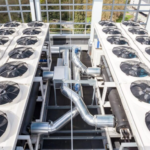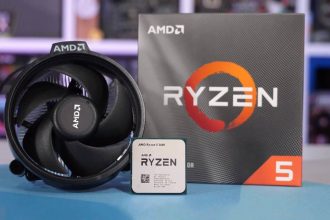If you own a vehicle, you need to ensure that you are regularly maintaining it and repairing any issues or damage to the car. Cars are required to be in a solid and roadworthy condition to ensure that they are safe to drive.
Neglecting to maintain your car will significantly impact its lifespan, safety, and performance. It can also lead to expensive repairs, reduced efficiency, and even dangerous driving conditions.
Let’s take a look at a few of the reasons why it is important to maintain and repair your car, click here for more.
1. Enhancing Safety
Safety is the most compelling reason to ensure that you follow a regular maintenance schedule for your car. A car is a complicated and intricate piece of machinery that has a number of different parts working together. A failure in one component can jeopardize your safety.
Regular maintenance ensures that critical safety features, such as brakes, tires, lights, and steering systems, are in good working condition.
For example, regular brake inspections can prevent brake failure, which is one of the leading causes of accidents. Ensuring your tires are properly inflated and have adequate tread can improve handling and prevent blowouts. And finally, functioning lights and indicators are vital for visibility and communication with other drivers.
2. Improving Performance and Reliability
A well-maintained car performs better and is more reliable, meaning that you are less likely to get stuck on the side of the road on your way to work in the morning or at night.
Regular maintenance tasks like oil changes, air filter replacements, and spark plug checks keep your engine running smoothly and efficiently. Clean oil lubricates engine parts, reducing friction and preventing the car from overheating, while clean air filters ensure optimal air flow, which is necessary for combustion.
Regular maintenance also helps in identifying potential issues before they become huge problems. For example, during a routine check, a mechanic might notice a worn-out belt or a leaking hose and address it before it leads to a breakdown. This proactive approach saves time, money, and the inconvenience of unexpected repairs.
3. Saving Money in the Long Run
While some car owners might view regular maintenance as an entirely unnecessary expense, it actually saves money in the long run. Doing preventative maintenance can ensure that you catch minor issues early, preventing them from escalating into more significant, costlier problems.
For example, a simple and inexpensive oil change can prevent engine damage that could cost thousands to repair.
Additionally, maintaining your car’s efficiency through regular servicing improves fuel economy. A well-tuned engine, properly inflated tires, and clean filters contribute to better gas mileage, saving you money at the pump (who wouldn’t like that?).
4. Maintaining Warranty and Resale Value
For new car owners, following the manufacturer’s recommended maintenance schedule is often a requirement to keep the warranty on the car valid.
If you choose to skip scheduled maintenance you may be voiding your warranty, which will leave you responsible for expensive repairs that would otherwise be covered.
Regular maintenance also positively affects your car’s resale value. When it’s time to sell or trade-in your vehicle, a well-documented maintenance history can make your car more attractive to buyers.
It shows that the car has been well-cared for and is less likely to have hidden issues, allowing you to negotiate a better price.
5. Extending Vehicle Lifespan
Consistent maintenance can significantly extend the lifespan of your vehicle. Cars are built to last longer today than ever before, but they still require regular care to ensure that they last.
By staying on top of maintenance tasks, you reduce the wear and tear on your vehicle’s components, ensuring it remains in good working condition for years.
Regular maintenance can also delay the need for a new car purchase, allowing you to get the most out of your current vehicle. This is not only economical but also environmentally friendly, as it reduces the demand for new car production and the associated environmental impact.
6. Ensuring Optimal Performance of Advanced Systems
Modern vehicles come equipped with advanced systems and technologies designed to enhance performance, safety, and convenience. These include electronic stability control, advanced driver-assistance systems (ADAS), and sophisticated infotainment systems.
Regular maintenance ensures that these advanced systems are functioning correctly.
For example, ADAS features such as adaptive cruise control, lane-keeping assist, and automatic emergency braking rely on sensors and cameras that need regular calibration and cleaning. Ensuring these systems are maintained keeps them working effectively, enhancing your safety and driving experience.
Regular car maintenance and repair are indispensable for ensuring safety, reliability, and performance. Investing time and money in regular upkeep not only ensures that your car is in good condition and functions to its full potential, but also that you are safe in it. Whether it’s routine oil changes, brake inspections, or advanced system checks, maintaining your car is a smart and responsible choice for every vehicle owner.














